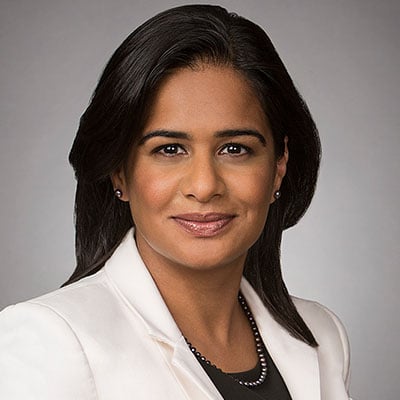2019 Private Fund Manager Compliance Update: U.S. SEC/CFTC Filing Deadlines and SEC Examination Priorities
As 2019 gets under way, advisers should plan for the upcoming year’s filing and compliance deadlines and assess their compliance programs to ensure that sufficient resources are devoted to key compliance areas noted by the SEC as examination priorities for registered investment advisers.1
2019 U.S. SEC/CFTC Filing Deadlines for Private Fund Managers
Key deadlines for a private fund manager with a December 31 fiscal year end include:
- February 14
Form 13F is due for managers who exercised investment discretion over $100 million or more of non-control positions on a discrete list of public securities prepared by the SEC at any month end during 2018, with updates thereafter due within 45 days of the first three quarter ends of 20192
Also on this date, managers who file Form 13H due to large transactions in U.S. exchange-listed securities and options must submit their annual update filing,3 and managers that have large passive ownership percentages in voting securities of public companies may be required to file Schedule 13G or an amendment thereto
- March 1
Managers that have filed certain CFTC exemptions4 from “commodity pool operator” registration covering funds engaging in CFTC-regulated hedging or swap activities must affirm their filings by this date
Also on this date, Form PF is due for “large hedge fund advisers,” with updates thereafter due within 60 days of each quarter end5
- March 31
Form ADV annual amendment deadline for registered and exempt reporting advisers6
- April 30
Form PF is due for private equity and real estate fund managers
2019 SEC Examination Priorities
On December 20, 2018, the SEC’s Office of Compliance Inspections and Examinations (“OCIE”) published its Examination Priorities for 2019. While these priorities generally follow the staff's 2018 published priorities and are significantly focused on retail investor protection, securities market infrastructure, SRO oversight and digital assets7, some priorities are of significance for private fund advisers, including reviewing:
- adviser business models that inadequately disclose fees, expenses or other charges, including for private fund advisers with a high concentration of fund investors investing on behalf of retail clients (e.g., pension plans and non-profits);
- management and mitigation of conflicts of interest, including with respect to the use of affiliated service providers and products, as well as borrowing funds from clients;
- adviser portfolio management and trading practices, including reviewing whether investment strategies are aligned with investor disclosure and investment opportunities are allocated fairly among clients;
- management and mitigation of cybersecurity risks, including an adviser’s configuration of storage devices, governance and risk assessment practices, access rights and controls, data loss prevention measures, vendor management, training and incident response, and controls over multiple branch offices;
- adviser AML programs, including examination of customer due diligence processes and the adequacy, monitoring of suspicious activities and timeliness of any required program testing; and
- newly registered advisers and other advisers that have never been examined or have not been examined for a long period.
In announcing these and other priorities, OCIE noted its continued commitment to a risk-based, data-driven and transparent examination program that leverages technology as well as human capital. OCIE also noted that its list of priorities is not exhaustive, and OCIE intends to conduct examinations focused on issues that arise from market developments, new information learned from examinations or other sources, including tips, complaints and referrals, and coordination with other regulators, as well as regulatory developments. Compliance personnel should ensure that resources are allocated to the compliance topic areas noted above.
For assistance with these or other items, please contact the Kirkland Investment Funds regulatory attorney with whom you usually work.
Regulatory: Norm Champ, Scott Moehrke, Kevin Bettsteller, Michael Chu, Matthew Cohen, Marian Fowler, Nicholas Hemmingsen, Alpa Patel, Elizabeth Richards, Peter Robau, Jaime Schechter, Aaron Schlapoff, Christopher Scully, Robert Sutton, Ryan Swan, Jamie Lynn Walter, Josh Westerholm, Corey Zarse
Enforcement: Neil Eggleston, Kenneth Lench, Robert Pommer, Erica Williams
1. Although the partial federal government shutdown that began December 21 is continuing as of the date of this publication, advisers should plan to make required filings and take compliance steps in the usual time frames.↩
2. I.e., by May 15, August 14 and November 14.↩
3. Further amendments must be made to Form 13H promptly following the end of any calendar quarter in which any information in the Form becomes inaccurate for any reason. Managers with a 2018 fourth quarter filing obligation can satisfy their quarterly and annual filing obligations in a joint annual and amended filing made before January 10, 2019. ↩
4. Including the de minimis exemption under CFTC Regulation 4.13(a)(3) most frequently used by private equity and real estate fund managers.↩
5. I.e., by May 30, August 29 and November 29.↩
6. Although March 31 falls on a Sunday, the IARD is typically available to accept filings on Sundays from 10:00 AM to 6:00 PM ET. Accordingly, managers should plan to file on or before that date. Managers should also verify that their IARD account is funded and password is current well in advance of the deadline.↩
7. With respect to digital assets, OCIE’s priorities include identifying advisers that offer, sell, trade or manage digital assets and assessing such advisers’ regulatory compliance for these activities, focusing on portfolio management of digital assets, trading, safety of client funds and assets, pricing of client portfolios, compliance and internal controls.↩
© 2019 Kirkland & Ellis LLP. All rights reserved.








